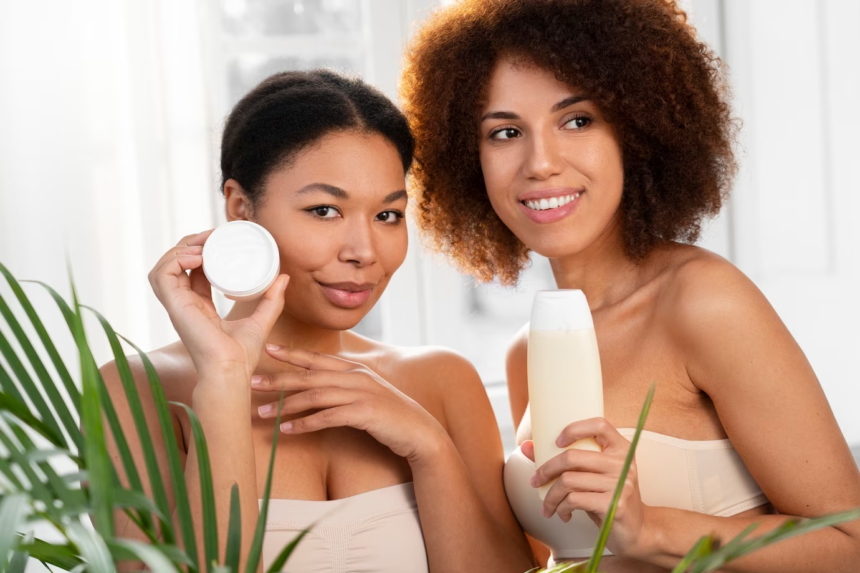In the diverse and vibrant South African climate, taking care of your skin is crucial. One key component of a healthy skincare routine is using an appropriate moisturizer that caters to your specific skin type and addresses the unique challenges posed by the environment. With a range of skin types prevalent in South Africa, understanding how to choose the right moisturizer can help you maintain optimal skin health and hydration. Here are some tips to consider when selecting a moisturizer for your South African skin.
- Know Your Skin Type: Identifying your skin type is the first step in choosing an effective moisturizer. South African skin types can vary from dry to oily, combination, or sensitive. Understanding your skin’s characteristics will help you select a moisturizer that addresses your specific needs.
- Dry Skin: If your skin often feels tight, flaky, or rough, you likely have dry skin. Look for moisturizers with rich, hydrating ingredients such as hyaluronic acid, glycerin, and natural oils like shea butter or argan oil. These ingredients help replenish moisture and lock it in, keeping your skin nourished and supple.
- Oily Skin: If your skin appears shiny, especially in the T-zone (forehead, nose, and chin), and is prone to breakouts, you likely have oily skin. Opt for lightweight, oil-free moisturizers or gel-based formulas that provide hydration without adding excess oil. Look for ingredients like salicylic acid or tea tree oil to help control oil production and prevent clogged pores.
- Combination Skin: Combination skin is characterized by different areas of the face having different skin types, with some areas being oily (usually the T-zone) and others being dry or normal. Choose a moisturizer that is lightweight and non-comedogenic, balancing hydration for both dry and oily areas of the skin. Look for products that offer oil control without drying out the skin.
- Sensitive Skin: If your skin is easily irritated, prone to redness, or reacts to certain products, you likely have sensitive skin. Opt for fragrance-free, hypoallergenic moisturizers that are gentle and non-irritating. Look for ingredients like aloe vera, chamomile, or oat extract, known for their soothing properties.
- Consider the South African Climate: South Africa experiences diverse climates, ranging from arid regions to coastal areas with high humidity. Consider the climate in your specific location when choosing a moisturizer.
- Dry Climates: In arid regions, where the air is dry and moisture is scarce, opt for moisturizers with intense hydration properties. Look for ingredients like ceramides, which help restore the skin’s natural barrier function, preventing moisture loss.
- Humid Climates: In humid areas, where moisture is abundant, lightweight moisturizers or gel-based formulas work well. Look for non-comedogenic products that won’t clog pores and contribute to excess oil production.
- SPF Protection: South Africa experiences high levels of UV radiation, and protecting your skin from the sun’s harmful rays is crucial. Consider choosing a moisturizer with built-in broad-spectrum SPF protection. Look for an SPF of 30 or higher to shield your skin from UVA and UVB rays, even on cloudy days.
- Additional Benefits: Depending on your skin concerns, you may want to look for moisturizers that offer additional benefits, such as anti-aging properties, brightening effects, or ingredients that target specific skin concerns like acne or hyperpigmentation. Consider products containing ingredients like retinol, vitamin C, niacinamide, or alpha hydroxy acids (AHAs) based on your specific needs.
- Patch Test and Consultation: Before incorporating a new moisturizer into your skincare routine, perform a patch test to check for any potential allergies or adverse reactions. Apply a small amount of the product to a small area of your skin and observe for 24-48 hours. If no irritation occurs, it should be safe to use. Additionally, if you have specific skin concerns or conditions, it’s always beneficial to consult a dermatologist or skincare professional who can provide personalized recommendations.
Remember, finding the right moisturizer for your South African skin type is a process of trial and error. Be patient, listen to your skin’s needs, and adjust your skincare routine accordingly. Regular moisturization is key to maintaining a healthy skin barrier, preventing moisture loss, and achieving a radiant complexion in the South African climate.










